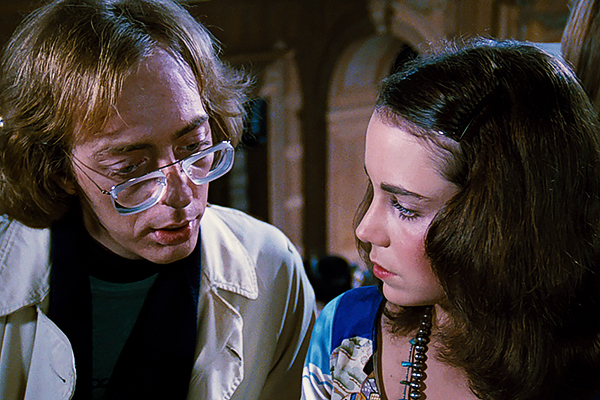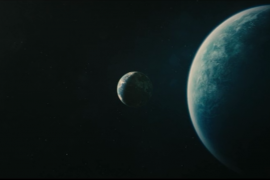Phantom of the Paradise is a musical horror film about the lexicon devil that is the music industry and the pain of exerting everything for nothing when led by a ravenous corporate hoodwink. Putting yourself out there is the hardest thing that a human can do because we all suffer from anxiety, despite what the most composed people may tell you. However, this is not a huge problem for most on sites like YouTube, Instagram, Soundcloud, etc., because the internet acts as a mask with an endless supply of personalities for your donning pleasure. The difference between them and Phantom protagonist Winslow Leach is that their mask is virtual, while his is physical.
Paul Williams, who portrays the shyster record mogul Swan, does a fantastic job as a ruthless soul who once was in Leach’s footsteps as a desperate nobody longing for something. Both characters destroy themselves in order to reap the benefits in their regards: Winslow as an artist and Swan as a person. Williams actually wrote and performed the music while portraying the villain, which is quite the impressive feat. It’s amusingly ironic that Paul Williams is destroying the career of a fellow musician that is effectively singing a song that he himself wrote. And as far as that music goes, it is pretty top notch for a rock ‘n’ roll horror piece. The opening “Goodbye, Eddie, Goodbye” by the fictitious Juicy Fruits makes for a smooth introduction into the world of Swan and co. The brightly lit credits are a spectacle to be seen and De Palma’s name literally shines before the title comes up as the song gets rolling.

Lifting inspiration from The Phantom of the Opera and the German folktale Faust, the movie blends these two stories to show the painstaking ways in which Leach tries to dominate Swan following a multitude of deceit. The main song that Leach presents is a composition of Faust and is later forced to compose an entire sonata inspired by a budding-singer played by Jessica Harper. This fuels his revenge for the rest of the film and encompasses a bitter hate that the general public should have for power abusers of the type.
Phantom of the Paradise is definitely a relevant film in terms of what has been happening within the entertainment industry of the last year. This powerplay by the grubby-fingered powers that be is something that has been going on in every industry for decades and will probably not stop no matter who tries. In the case of this film, Winslow tries multiple times to exact vengeance and ultimately succeeds in the end. Hopefully, we can do the same and exact our own rock ‘n roll-fueled vengeance in time to come.





